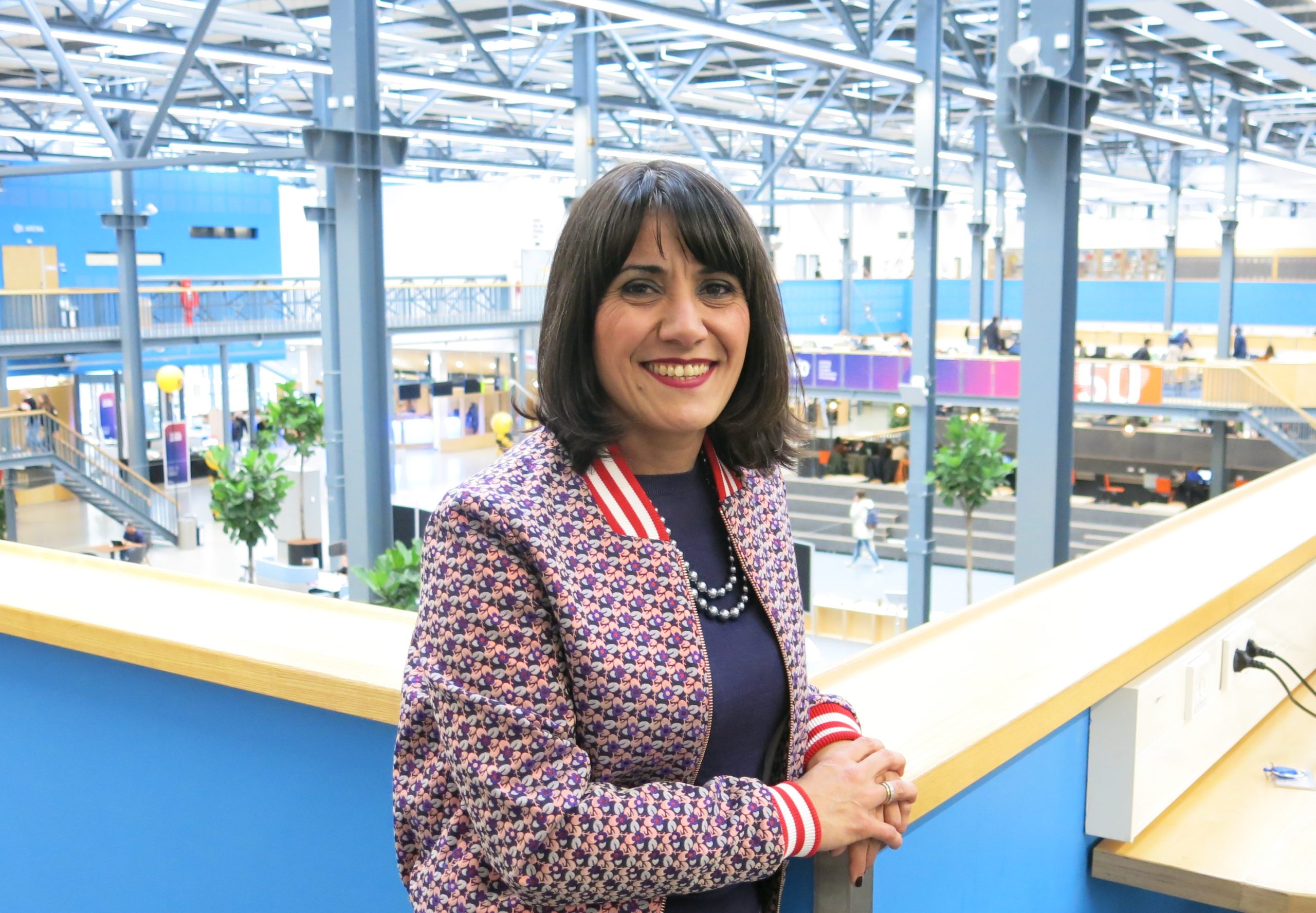How does sound hinder the patient recovery process? Associate Professor Elif Ozcan Vieira will tell you.
Elif Ozcan Vieira: "Everyone struggles to find their own path." (Photo: Heather Montague)
“I had a background in industrial design and sound design, so when I found an ad in the Netherlands saying they were looking for industrial designers with experience in sound design, it was that moment you know that you are the person for the job. I felt so confident and immediately applied. Very quickly I got the job and I never wanted to leave here again. I did my PhD and then was offered two jobs here as an assistant professor.
For a while after the PhD, I think everyone struggles to find their own path and their authentic self. What kind of a researcher are you on your own? If the safety net is gone and you have to prove yourself, what can you do? I did explore some other topics, but I was not fully satisfied. The urge to work with sound and that comfort zone that allows you to challenge yourself pushed me back to the sound domain.
In 2017 I set up the Critical Alarms Lab as a manifestation of that passion. I was in the right place at the right time with the right people around me who believed in it. I had also matured as a scientist. Now I work one day a week at Erasmus Medical Center, working on the soft side of the ICU. It’s not about medical treatment or patient outcomes, but about how to improve the recovery process and how changing the sonic environment not only helps patients to recover faster but allows clinicians to have a better work environment where they can be the best they can be.
‘Clinicians are hindered by noise and too many alarms’
Now clinicians are hindered by noise and too many alarms. For example, a nurse has to be warned if a heart rate drops or increases, but there are safe limits where this can happen. Nurses, to be able to monitor from a distance, keep these limits so tight that the alarm goes off very quickly and often. Too many alarms can lead to lack of sleep for the patient, and the nurses can have a lack of interest when they are no longer able to distinguish a true alarm from a false alarm.
In the lab, we want to reduce the false alarm rate while still satisfying the nurses’ need to monitor from a distance. What drives them to monitor from a distance? Can we give them an earpiece so they can still monitor the trends in the data but they don’t bother anyone else? These are the kinds of questions we are tackling. We question the legitimacy of so many alarms and their role in a patient’s room, and question whether they can be outside of the room. This can reduce anxiety in the patients. When you are sleep deprived, your body doesn’t have enough resources to cope and all you should have to do as a patient is keep calm and recover.
Recently, we designed a silent patient monitor, called Ultimo, in such a way that it’s only active with alarms in the presence of a clinician, but it’s quiet when the patient is alone. These are nice solutions, but medical care is highly regulated so it can be hard to implement. So, one of the aims of our lab is to inspire, to bring up these kinds of solutions to start discussions and involve regulatory agencies, hospital management, patient organisations, and scientific institutions, so that we can come to a consensus and understand the problems.”
Heather Montague / Freelance writer



Comments are closed.